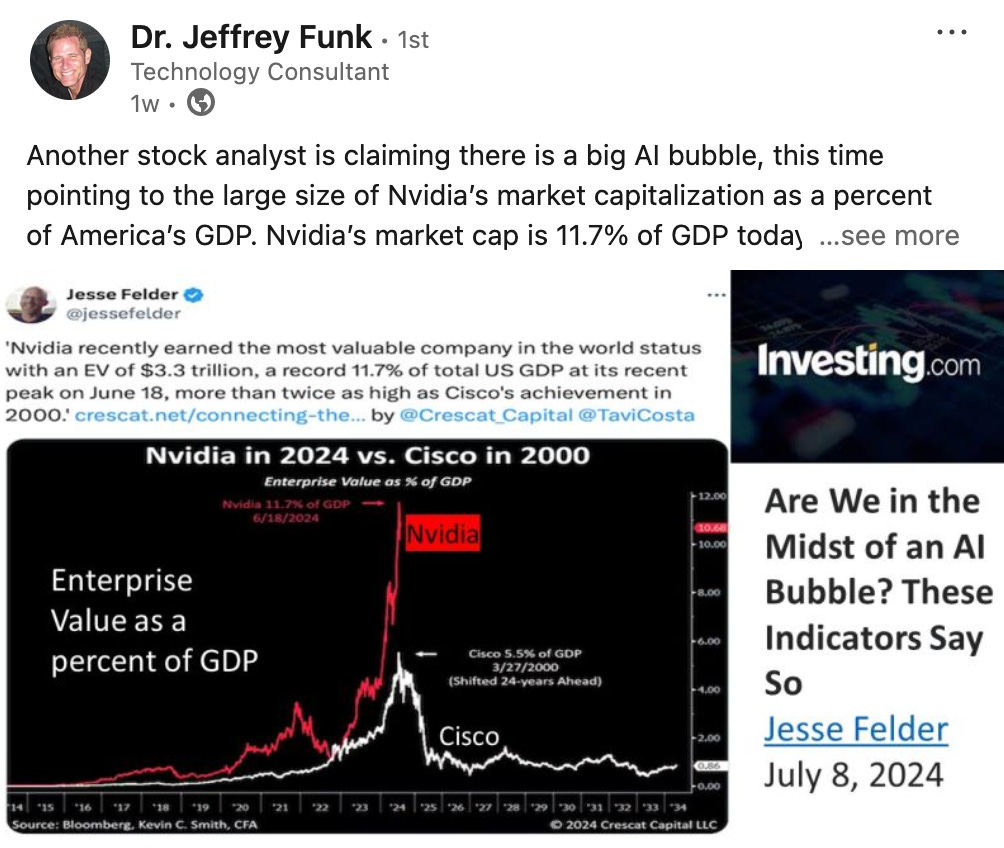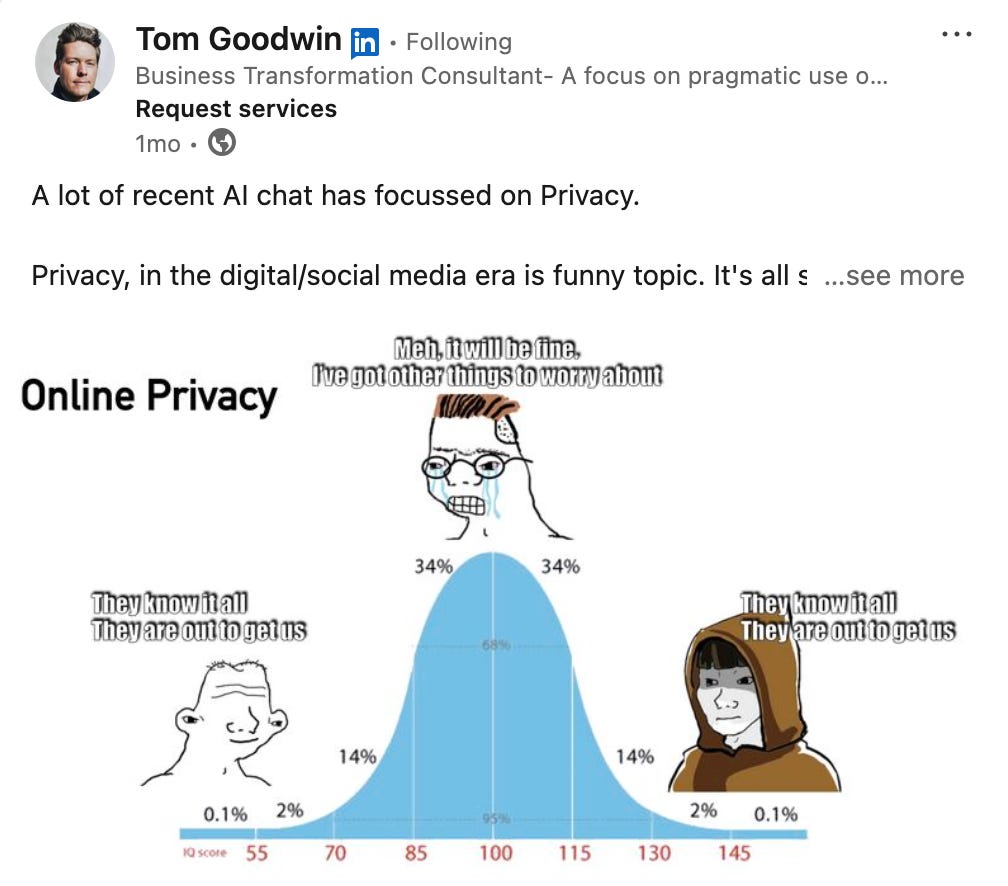Inspiration on what to read. Everyone knows Lean Startup and Disciplined Entrepreneurship, let’s give you some lesser-known things.
A great free PMFit guide
Let’s start simple. This great PDF with 91 pages on how to get to PMFit by Harvard’s Rob Schnyder. Downoad Link.
You could compare it to my playbook.
Subscribe to Jeffrey Funk on LinkedIn
My favourite anti-tech hype writer Jeffrey Funk is worth a follow. Backed with sources, he claims the overhyping of many technologies, such as AI. Follow him on LinkedIn
Later this year, his book ‘Unicorns, Hype, and Bubbles: A guide to spotting, avoiding, and exploiting investment bubbles in tech’ will be available for purchase. Can’t wait.
Follow Tom Goodwin, the pragmatic futurist
If you need some extra nuance, give Tom Goodwin a follow. He’s got solid takes on tech and innovation hype, and gives fresh perspectives with sources on current events.
Check out the Science of Science on Twitter
Misha Teplitskiy is a sociologist who studies innovation and science. Science of science, meta-science, very interesting stuff. Give him a follow!
A history of innovation failures
Vaclav Smil is a well-known (at least in some communities) historian who writes a lot about innovation; you might have read his contributions on the world’s energy creation and consumption. Last year, he wrote an amazing book on how many failed innovations. Filled with accurate case studies on blimps, and nuclear fusion, this is a good hate-read for next to the pool. Amazon Link
A dash of philosophy
What is design, really? More specifically, what does it mean to achieve problem-solution fit? In one of my favourite books, Cristopher Alexander’s ‘Notes of Synthesis of Form’, the first 3 chapters give you an interesting take.
Amazon LinkWhat does it mean to find a problem? What does it mean to investigate one? Philosopher Dewey gives a fairly accessible description of this process in his book ‘Logic, The Theory of Inquiry’. Chapter 6, ‘The Pattern of Inquiry’, should give you some ideas.
Free Download LinkDon’t you hate people that make frameworks holy? Yes. This overrationalisation of practice is not new. In 1983, Donald Schön published a book that contains a critique on what he calls ‘technical rationality’. The first chapter, ‘The Crisis of Confidence in Professional Knowledge’, should be an accessible read to most of you.
Amazon LinkIntroduction to Philosophy of Science. I can’t recommend this enough. If you want to increase your understanding of what it means to validate something, read this ‘Very short introduction to Philosophy of Science’ book.
Amazon Link










